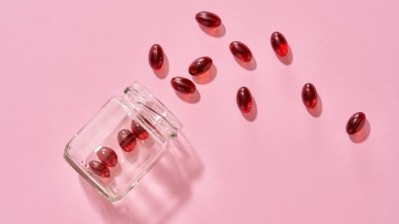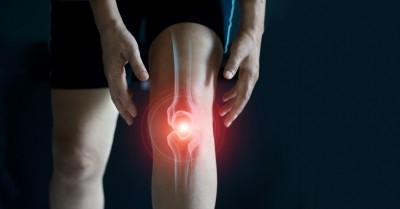Krill oil supplementation can support power training, finds Aker Biomarine study

In the study collaboration involving Aker BioMarine, scientists conclude that krill oil can used to increase the HS-Omega-3 Index, a measure of eicosapentaenoic and docosahexaenoic acid (EPA + DHA) in the blood, specifically the red blood cell membranes.
According to the study, the approach can also be used to recover choline concentrations and address oxidative stress after intense power training, sometimes referred to as CrossFit.
“At the start of the study, we discovered that the 82% of the participating athletes had an Omega-3 Index below the recommended level,” explains Yunpeng Ding, Director R&D in Aker BioMarine, and one of the study authors.
“This clearly indicates that athletes should strongly consider including omega-3 fatty acids as part of their diet and nutrition plans.”
Study approach
Along with scientists from Spain’s Centro de Alto Rendimiento (CAR) and the University of Barcelona, the team recruited 35 healthy power training athletes.
The randomised double-blind design saw these athletes receive either 2.5 grams per day (g/day) of Neptune krill oil (550 milligrams (mg) EPA/DHA and 150 mg choline) or olive oil (placebo).
After 12 weeks, only the krill oil group showed a significant HS-Omega-3 Index increase from 4.82 to 6.77% and a reduction in the arachidonic acid (AA), an omega-6 fatty acid, vs. EPA, (ARA/EPA) ratio (from 50.72 to 13.61%).
The krill oil group showed significantly higher recovery of choline concentrations relative to the placebo group from the end of the first to the beginning of the second exercise test.
Additional findings showed an 8% decrease in total antioxidant capacity post-exercise versus 21% in the placebo group.
“Both choline and omega-3 are important to both performance and recovery,” comments Ding.
“We see that krill oil can be an effective means to ensure that the athletes receive adequate amounts to support their training and high intensity exercise regimens.”
Choline concentrations
In discussing the increased plasma choline concentrations in the krill oil group in comparison to a decrease in the placebo group, the team suggested that without optimal oral choline intake, the body could not fully recover and would further deplete choline stores.
It was suggested that for activities that reduce circulating choline levels below normal, oral choline supplementation might increase endurance performance, since choline is needed to produce acetylcholine for optimal muscle performance.
“Assessing performance was not part of this pilot study and it is unclear if a 7.3% drop in circulating choline concentrations can have an effect on power performance but could be of interest in a follow-up study,” the team writes.
The researchers also commented on the changes to the HS-Omega-3 Index after krill oil supplementation, which increased in power athletes from 4.82 to 6.77%.
“Even though 6.77% is slightly below the optimal target of 8%, changes from 3.58 to 6.87% and from 3.3 to 5% were previously associated with a decreased risk for sudden cardiac death in a prospective cohort study by about 80% and by a 70% reduction for risk of primary cardiac arrest in a case-control study,” the study states.
“Such changes might therefore be of importance, in particular with respect to athletes who may have an elevated risk for sudden cardiac death when compared to the general population.”
Total antioxidant capacity
Regarding the improvements in total antioxidant capacity (TAC) the team note the tendency to a lower reduction in the TAC post-exercise in the krill oil (−8%) in comparison to the placebo group (−21%).
However, significance was not reached, which might be explained by the low number of tested subjects and should be verified in a larger study setup.
“A low TAC is indicative of oxidative stress or increased susceptibility to oxidative damage,” the team concludes.
The lower reduction of the antioxidant capacity after supplementation with krill oil may indicate the possible protection of the higher levels of omega-3 polyunsaturated fatty acids (n-3 PUFAs).
Additionally, astaxanthin in the cell membranes may minimise cell injury and/or the antioxidant action of these nutrients limit the use of the internal TAC reserves suggesting that krill oil increases the capacity to scavenge free radicals.
Source: Nutrients
Published online: doi.org/10.3390/nu13124237
“Krill-Oil-Dependent Increases in HS-Omega-3 Index, Plasma Choline and Antioxidant Capacity in Well-Conditioned Power Training Athletes.”
Authors: Franchek Drobnic et al.















